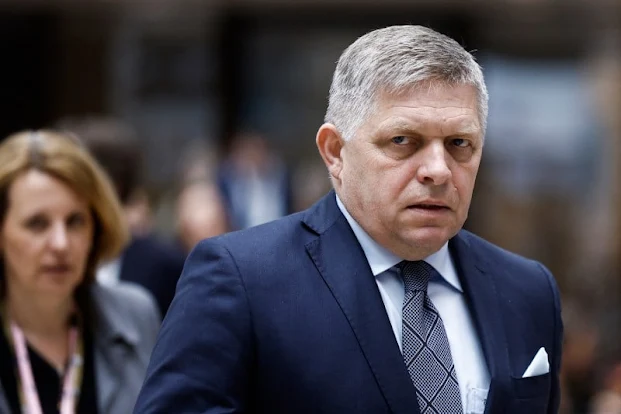On May 15, Slovak Prime Minister Robert Fico was the target of a politically motivated assassination, closely tied to NATO’s conflict with Russia in neighboring Ukraine. Investigations by Slovak authorities indicate that Jaraj Cintula, who was apprehended during the shooting, harbored hostility toward Fico’s criticisms of NATO’s actions against Russia. There is suspicion that Cintula might have received assistance from foreign intelligence agencies.
Both Fico’s SMER-Social Democracy party and the pro-NATO opposition Progressive Slovakia party are calling for calm, warning of the potential for "civil war." However, the political trajectory in Eastern Europe since the restoration of capitalism in 1989 has been fraught with turmoil. Some powerful factions within NATO, which Slovakia joined in 2004, may view Fico’s shooting favorably as part of their strategy to suppress opposition to a full-scale war with Russia across Europe.
Questions arise about the possible involvement of the CIA and other intelligence services from major NATO countries in Fico’s shooting, a notion fueled by recent statements from Slovak Interior Minister Matus Sutaj Estok and officials from the Slovak Information Service (SIS). Estok noted that Cintula’s Facebook history was deleted while he was in police custody, suggesting external involvement. He mentioned that Cintula was angered by the Slovak government’s Ukraine policy, further complicating the narrative.
Initial reports branding Cintula as a leftist have been debunked. Known for his violent nationalist rhetoric against the Roma ethnicity, Cintula reportedly sympathized with Progressive Slovakia, though the party denies his membership. This affiliation indicates a fascistic support for NATO’s stance in the Ukraine conflict.
These developments are being closely monitored by Eastern European officials who have also made calls for peace in Ukraine, fearing they might be next. Bulgarian President Rumen Radev commented on the shooting, highlighting the intolerance for dissent and the negative consequences of labeling differing views as pro-Russian.
Pavol Gaspar, deputy director of Slovakia’s SIS, suggested the possibility of foreign state involvement in Fico’s shooting, though he did not specify which agencies. Given that the Kremlin had no interest in eliminating one of its few European allies, suspicion falls on NATO countries whose elites might support such an assassination.
Commentary in the British Daily Star by think-tank official Anthony Glees gloated over the potential impact of Fico’s shooting on Putin, hinting at broader geopolitical implications. Media outlets like Sky News have condemned Fico as “controversial” and “sympathetic to Putin,” while criticizing his coalition government.
The opposition to social austerity and war in Slovakia reflects a broader discontent across Europe. Polls indicate significant resistance to sending troops to Ukraine, with 68% of French, 80% of Germans, and 90% of Poles opposing such actions. This resistance is growing amidst global student protests against NATO’s complicity in Israeli actions in Gaza.
Slovakia faces a deepening crisis, with ruling elites warning of civil unrest. The only viable solution is the unification of the European and international working class in a movement against imperialist war and for socialism, based on a Trotskyist perspective of international proletarian revolution.
Opposition to Fico’s attempted assassination and NATO’s war with Russia does not imply support for Putin’s regime or Fico’s policies. Despite Fico’s criticisms of the war, he has not opposed NATO expansion or the Ukraine conflict, ultimately serving the interests of Slovak capitalism.
Workers and youth must reject calls for social peace from Fico’s party and rivals, uniting instead against the catastrophic potential of a NATO-Russia war. The political crisis in Slovakia highlights the urgency of building such a movement.
Recently, the Ukrainian regime arrested Bogdan Syrotiuk, a leader of the Young Guard of Bolshevik-Leninists (YGBL), on politically motivated charges. The YGBL advocates a Trotskyist perspective for unifying workers in Russia, Ukraine, and beyond against capitalism and war.
The attempted assassination of Fico underscores the revolutionary crisis brewing across Europe. The Slovak regime fears left-wing opposition to imperialist war, just as Ukraine’s regime dreads mass dissent among workers forced into the front lines. It is crucial to free comrade Bogdan and build an international socialist movement against imperialism and capitalism across Eastern Europe and worldwide.

Comments
Post a Comment